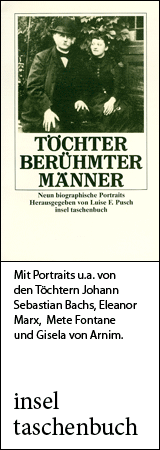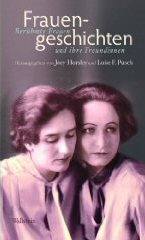Biographies Charlotte von Kirschbaum

Karl Barth-Archiv Basel
(Charlotte Emilie Henriette Eugenie von Kirschbaum)
born on June 25, 1899 in Ingolstadt, Germany
died on July 24, 1975 in Riehen near Basel, Switzerland
German writer and collaborator of Karl Barth
125th birthday on June 25, 2024
Biography
When her beloved father fell in France in 1916, Charlotte von Kirschbaum left home and trained as a Red Cross nurse in Munich. Even then, she was interested in theological issues, and through a friend she became acquainted with Karl Barth's avant-garde “dialectical theology.”
She first met Karl Barth in 1924. In 1929 she “took her happiness into her own hands” and moved in with his family at the request of Barth, who by then held a professorship in Münster. Barth had already been married to Nelly Barth-Hoffmann for 16 years and was the father of five children. Their ménage à trois was to prove difficult and strained at times, but lasted almost forty years.
Nelly took care of the household and children; Charlotte joined Barth in intellectual ventures. She saw to his correspondence and, as an assistant for lectures and talks, she also learned Latin, Greek and Hebrew. She played a critical role in the creation of the most impressive theological work of the 20th century, the 13-volume Church Dogmatics.
It was probably in 1930 that Heinrich Scholz, whose Kant lectures she attended in order to report back to Barth, proposed to her. But the collaboration with Barth was, as a friend described it, “a complete unity in intellectual exchange,” and so she declined. In 1935, Barth received the fortuitous offer of a professorship in Basel, and it was there that Charlotte finally seemed to emerge from “working in the shadows.” She became involved in the German Resistance and was elected to the national leadership of the Free-Germany Movement in Switzerland. She published her own works: Die wirkliche Frau (The Real Woman, 1949) was a critical examination of Simone de Beauvoir's femme libre and the Marian dogmas of the Catholic Church. She posited that the woman is “subordinate” and “an assistant” to the man, yet enjoys equal rights as his “counterpart,” seemingly reflecting on her own position. In the early 1960s, she showed signs of cerebral palsy and was admitted to a nursing home in 1964, where she spent the following ten years in a semiconscious state. At Karl Barth's request, she was buried in 1975 in the Barth’s family grave in Basel.
(Text from 1994; translated with DeepL.com; edited by Ramona Fararo, 2024)
Please consult the German version for additional information (pictures, sources, videos, bibliography).
Author: Susanne Gretter
If you hold the rights to one or more of the images on this page and object to its/their appearance here, please contact Fembio.



